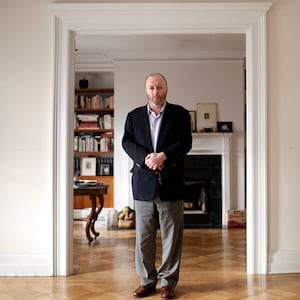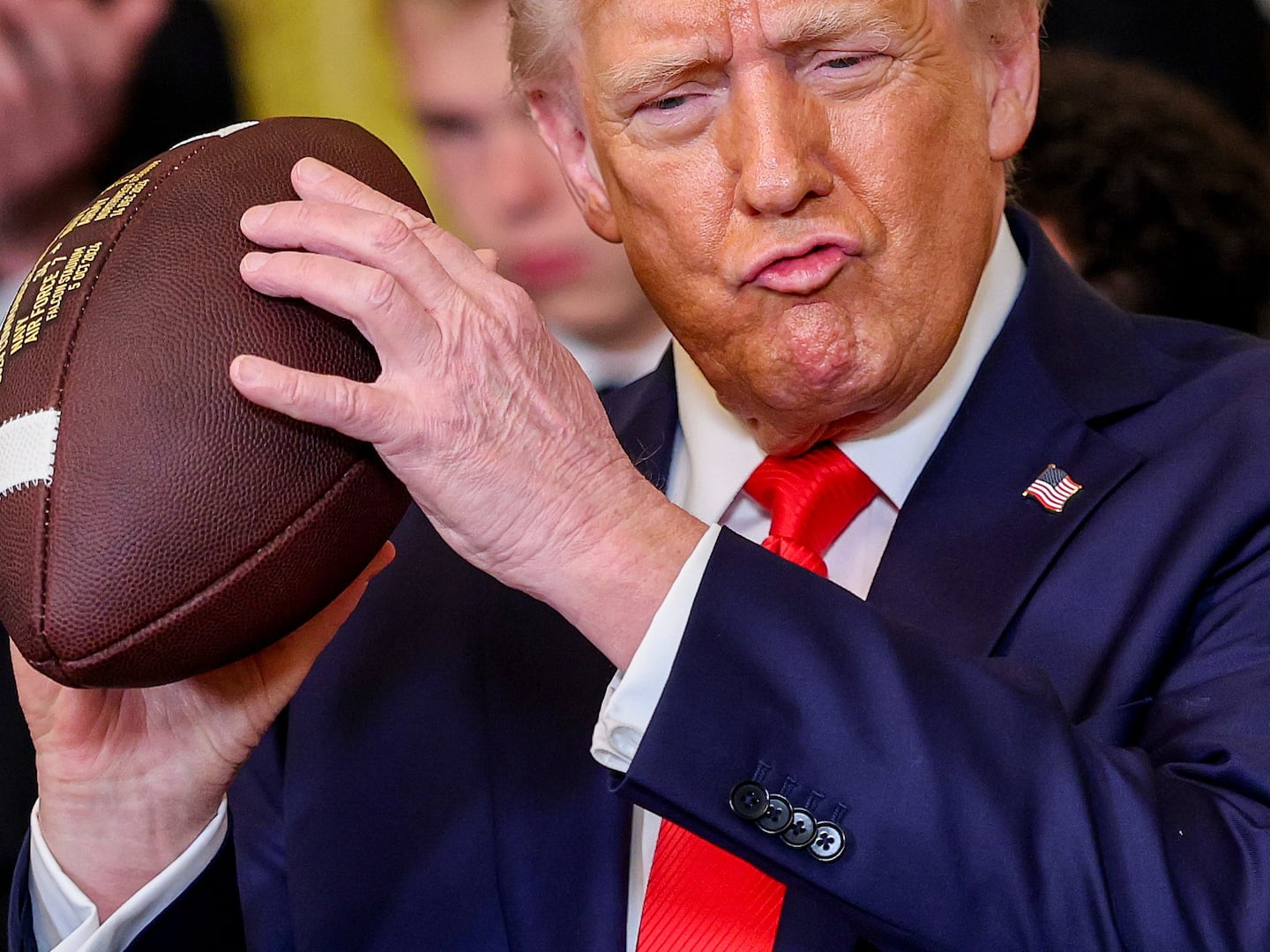Christopher Hitchens—the legendary journalist, author, and contrarian who made his name as a leftist firebrand, then became almost as well-known for his turn as a post-9/11 hawk—died 10 years ago last month.
The anniversary of his passing coincided with numerous invocations of his legacy on behalf of many causes. But Hitchens continues to loom particularly large among anti-woke culture warriors—the types who argue that “Critical Race Theory” and “Cultural Marxism” are existential threats to “Western civilization.”
I wrote a book about Hitchens that came out a few weeks ago, and in that time have fielded a lot of questions about how “Hitch” (as his friends called him, and he called himself) might have reacted to any number of events of the past decade.
Given his intense hatred of Bill and Hillary Clinton, would Hitchens have been able to bring himself to endorse Hillary when she was running against Donald Trump—a man Hitchens once called a “nutball narcissistic tycoon”?
How about Afghanistan and Iraq? After the wars he’d supported in those countries dragged on through year after year of dismal failure, would Hitch ever have been able to admit that he was wrong?
In some of these cases, the only honest answer is, “Your guess is as good as mine.”
There are a few issues, though, on which there’s very little room for doubt about where he would have stood.
Had Hitchens somehow survived the cancer that took his life in December 2011, he’d certainly have thoughts about the culture war being waged by right-wing activists like James Lindsay and Christopher Rufo over “Critical Race Theory” and its alleged presence in K-12 classrooms.
He’d also have a say on the many Republican-written anti-CRT bills—like the one introduced in Virginia last week that mandates teachers who “teach or incorporate into any course or class a divisive concept” be fired, and that schools publicly disclose “all instructional materials and activities” before the beginning of the school year to make sure no such concepts are present.
A writer as prolific as Hitchens—who once defended himself against the charge that he was a raging drunk by pointing out that he wrote “at least a thousand words of printable copy every day” on top of his packaged schedule of speaking and teaching and debates—wouldn’t only comment on these developments, he’d do so in a way that left a mark.
For specificity, the list of banned “divisive concepts” in the aforementioned Virginia bill includes the claim that either the Commonwealth of Virginia or the United States as a whole is “fundamentally or systematically” racist.
Presumably, different school boards and different groups of parents would parse this requirement with varying degrees of leniency, but if I were a teacher in Virginia who wanted to keep his job after this law was passed, I would be very careful about certain topics I might sympathetically discuss with my students.
This would include any reading assignments that might hint that (a) Black people in the United States are disproportionately worse off than white people, financially, and (b) this situation isn’t a result only of individual decisions made in the present but by the sort of historical patterns of economic distribution that could be construed as, well, “fundamental.”
To surmise what Hitchens might have made of all of this, it’s useful to look at two of his public debates. In one such conversation at the end of 2001, he argued in favor of reparations for the descendants of slaves. Dismissing what he called the “white whine” that always greets this demand, he insisted that however limited present-day compensation might be in healing the devastation wrought by slavery and Jim Crow, we have a duty to do what we can. That puts Hitchens far closer to the Ta-Nehisi Coates wing of the discourse than to Chris Rufo.
In a 2006 debate at the University of Toronto on the importance of free speech and the open discussion of controversial ideas, Hitchens led off with one of his all-time great openings: “FIRE! Fire fire fire. OK. Now you’ve heard it. Not shouted in a crowded theater, admittedly…”
Hitchens reminded us that the line he’s mocking comes from Oliver Wendell Holmes’s justification for upholding the imprisonment of “a group of Yiddish-speaking socialists” passing out literature “opposing President Wilson’s participation in the First World War.” Given the horrors of that war, it could be plausibly argued that these dissidents were trying to save lives by shouting “fire” in a theater that really was on going up in flames.
More importantly, Hitchens argued, the vital questions are always, first, who gets to decide what counts as a fire and, second, how much you trust them to make the right decisions.
Those who feel a society-saving duty to ban what an unsympathetic parent or school board member could construe as “CRT” ought to understand that they’re empowering government bureaucrats to peer over the shoulders of classroom teachers. They should also have the humility to understand that any number of ideas they hold dear could also be defined as “divisive concepts.”
The actual connection between actual academic Critical Race Theory and any reading likely to be assigned in a Virginia classroom is tentative at best. But imagine that, for example, The Space Traders by Derrick Bell was regularly assigned in high school classes. Bell is one of the founders of CRT and the book’s story is designed to illustrate his understanding of ongoing structural racism through an analogy about aliens.
Would students reading and discussing this story really constitute a crisis? Are we supposed to believe that Virginia teenagers are so fragile that they can’t read about “divisive concepts” without automatically agreeing with the author’s point of view? Why not trust them to think it all through and make up their own minds?
I don’t claim that Christopher Hitchens would have reserved all his contempt for the conservative side of the race-related culture wars raging in 2022.
Hitchens could be a sharp critic of identity politics—in particular, he wasn’t particularly fond of “identitarian deference,” which the leftist writer Matt Bruenig described as the idea that people outside of less-privileged identity categories should automatically defer to people within those groups on any question pertaining to their oppression. Hitchens, too, might have criticized progressive opponents of CRT bans over their indifference or outright hostility in other contexts to free expression and the right to say offensive things (a.k.a. “divisive concepts”).
But I have absolutely no doubt Hitch would have abhorred the anti-CRT laws themselves—and he would have been right.








